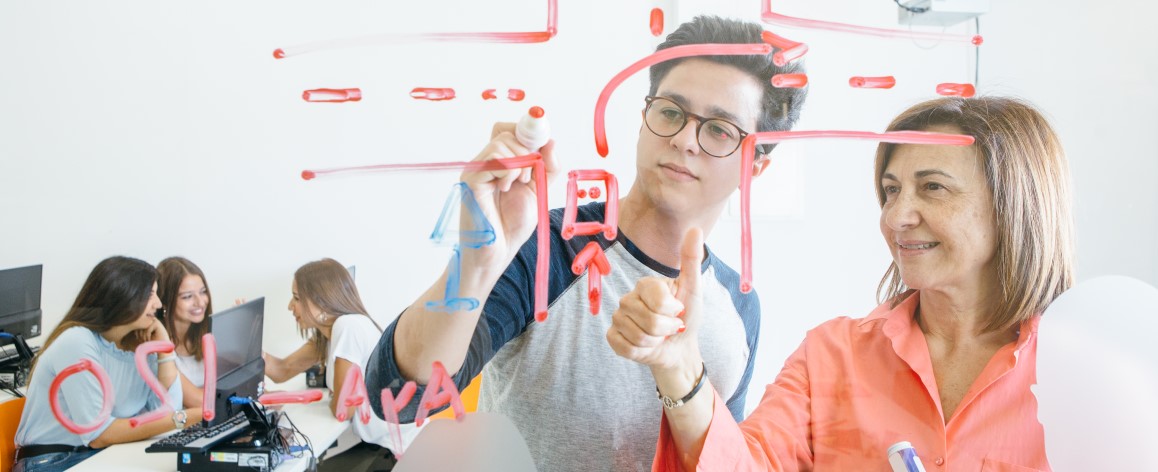In the Classroom

Professional Relationships for Paras
Professional relationships
Communication tips for paraprofessionals
Like any relationship, a good professional relationship takes work. Here are some communication tips you can use to build stronger relationships with your fellow paraprofessionals, teachers, and administrators.
- Share your vision for the future with your colleagues, both with other paraprofessionals and educators. Take time to get to know them and their professional goals. All educators strive to deliver students the best learning experiences possible,so discussing ways you can work together to provide these experiences foryour students can benefit everyone involved.
- Know that every professional relationship is affected by diverse personalities and differences of opinion. Communication is the key. If you are having difficulties with a colleague, find time to sit down with them and respectfully discuss ways you can address the situation. By doing so, you’ll show that you are proactive and want to better the relationship. Be calm and have a plan for discussing things that are bothering you. Have specific ideas for solutions to the problem and be open to compromise.
- Be conscious of the signals you are sending with your posture, facial expressions, eye contact, tone of voice, and gestures. Make sure you are sending the message you intend. Nonverbal communication is often overlooked by the person doing it and may be the only communication the other person receives.
- Remember that everyone has a distinct way of viewing and reacting to situations. In the end, you can only control your actions.
- Know your strengths and weaknesses. Try to recognize both your professional strengths and areas in which you need improvement. Working on personal growth can help your relationships thrive.
Teacher/aide relationships
How to build strong teams with paraprofessionals
A strong teacher/paraprofessional team is critical to student success. When a teacher and an aide are working together to plan lessons, deliver instruction, and evaluate student progress, a successful environment is created.
How to involve paraprofessionals in instruction
- Meet with paraprofessionals before school starts to review school policies and emergency procedures, discuss classroom management style, meet other staff, and explain classroom roles.
- Use role-playing to demonstrate expected behavior and instructional strategies to paraprofessionals.
- Create communications systems. You can do this by creating designated areas that contain lesson plans, announcements and other information that could benefit the flow of everyday classroom activities.
- Develop methods for observing and recording student progress. For instance, paraprofessionals can use sticky notes to record observations while working with students, and then give the notes to the teacher at the end of the class..
- Always include paraprofessionals in planning time. Discuss lesson plans together and review the aide’s role in each activity.
- Clearly define the supervising teacher’s role in the evaluation process. Give constructive feedback to paraprofessionals as often as possible.
- Make effective communication a top priority. Teams need training in problem-solving communication skills and must put the strategies they’ve learned into place.
Ways to say “thanks” to aides and other paraprofessionals
- Introduce paraprofessionals to other faculty members before school starts. Making sure the paraprofessional is comfortable working with their colleagues in a welcoming, friendly environment encourages community amongst co-workers.
- Assign paraprofessionals their own faculty mailboxes. This boosts professional confidence, allows them to receive their own newsletters and mail, and shows they are an important part of the education team.
- Invite paraprofessionals to faculty meetings and, when possible, involve them in the planning of presentations. Delegating tasks to paraprofessionals shows you have acknowledged their skills and strengths that can enhance the learning experience.
- Leave sticky notes acknowledging a job well done. Small acts of gratitude can make a huge difference in someone’s day.
- Encourage paraprofessionals to attend educational conferences.
- Produce a special newsletter just for paraprofessionals on your campus or in your district.
- Include paraprofessionals in year-end recognition ceremonies. For instance, teachers on your campus could select a Paraprofessional of the Year.

